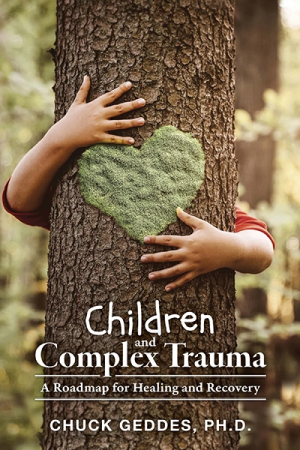It looks like you've stumbled upon a page meant to be read by our code instead of viewed directly. You're probably looking for this page.
Children and Complex Trauma
A Roadmap for Healing and Recovery
Children and Complex Trauma is a powerful book that suggests means of creating strong relational networks to support children’s recovery and resilience.
Chuck Geddes’s psychologically astute book Children and Complex Trauma draws on brain science to suggest ways for adults to support children who are reckoning with their pasts.
Children who have experienced trauma, particularly those in foster care, face challenges to their brains’ development, Geddes says. But these interruptions to their development can be addressed, using calming strategies that answer their psychological needs and give their brains the opportunity to “re-wire and re-set.” While most focused on the roles of parents and professionals (including psychologists) who are positioned to help such children adapt, grow, and flourish, this work also issues a general call for trauma-informed approaches to medication, as well as for systemic changes to the foster care system, that support its broader notions.
Geddes’s recommended program draws on his clinical experience, as well as on recognized research; it includes methods like developing a care team for the child, building clear communication through direct language, and focusing on the child’s strengths and successes. Its directions are comprehensive, but flexible; they represent a spirit of perseverance.
Beyond its practical applications, the book is clear in imparting general understandings of how behavior works from a neuroscience perspective; it shares methods of addressing the root causes of one’s behavior in a similarly transformative way. Topics like the three parts of the brain (oriented, respectively, on tasks of survival, emotional and relational behavior, and logic) are covered in direct terms, clarifying how each influences one’s behavior; this makes it easier to understand the book’s recommendations for relating to and reasoning with a child who is in survival mode. Geddes also shows how trauma undermines one’s sense of attachment, conveying how principles like Daniel Hughes’s PACE—being playful, accepting, curious, and empathetic—can lead to healthy attachments.
Directed by overarching trust in neuroplasticity, or the brain’s ability to change, this book makes complex psychological and neuroscientific concepts easy to understand. Further, it uses case studies to bolster understanding, following as children recover from their traumas, and revealing the impact of its strategies upon their processes. And Geddes narrates how he learned these concepts himself (in the process, unlearning previous misunderstandings), imparting hope that others can do the same.
Children and Complex Trauma is a powerful book that suggests means of creating strong relational networks to support children’s recovery and resilience.
Reviewed by
Melissa Wuske
Disclosure: This article is not an endorsement, but a review. The publisher of this book provided free copies of the book and paid a small fee to have their book reviewed by a professional reviewer. Foreword Reviews and Clarion Reviews make no guarantee that the publisher will receive a positive review. Foreword Magazine, Inc. is disclosing this in accordance with the Federal Trade Commission’s 16 CFR, Part 255.
